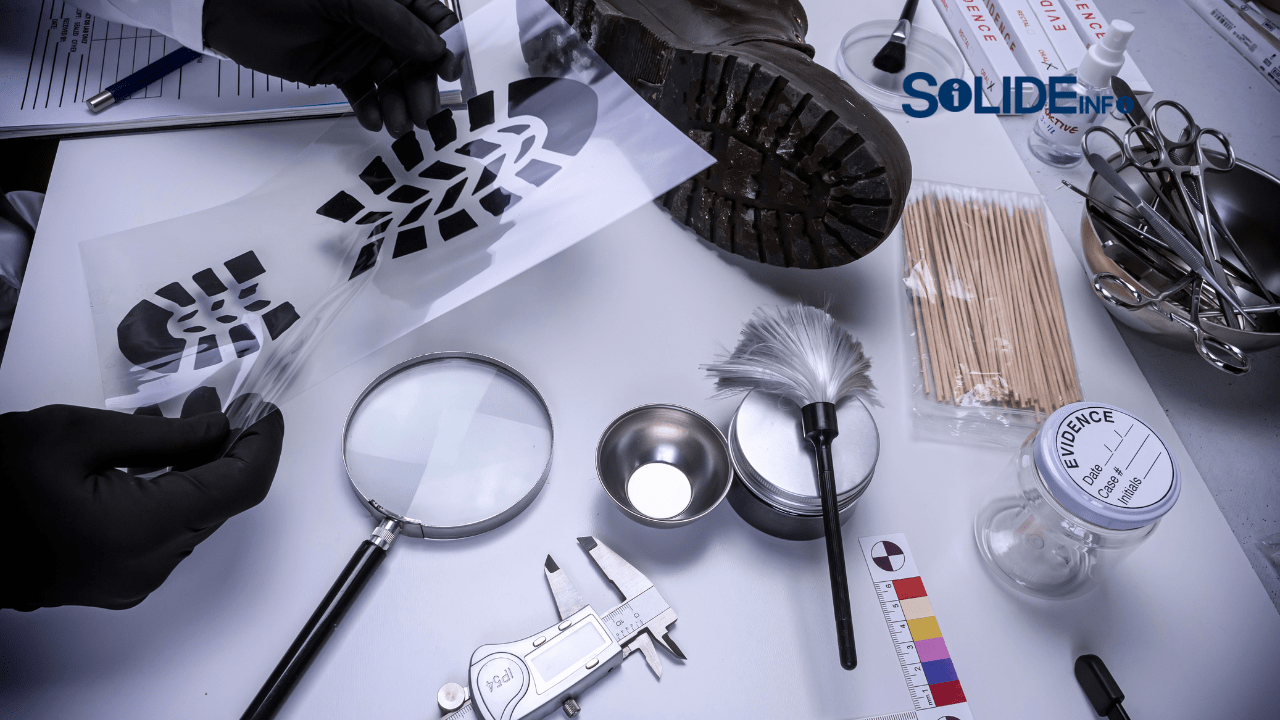When most of us hear the term “forensic science,” we picture a lab with microscopes and DNA analysis. And while that’s a huge part of it, the field is so much bigger and more diverse than what we see on TV. The world of forensic science is a fascinating collection of specialized disciplines, each with its own unique role in solving crimes. It’s a job for people who love science, but also have a passion for human behavior, history, or engineering. This article will take you on a journey through some of the most compelling and often-overlooked fields within forensic science, showing you how a forensic specialist can be a psychologist, an anthropologist, or even an engineer. We’ll explore the roles of forensic psychology and forensic anthropology in piecing together a case. We’ll also delve into the work of a forensic engineer and a forensic toxicologist, demonstrating that there’s a specialized path for nearly every scientific background. If you’ve ever wondered what a career in these niche areas looks like, you’ve come to the right place.
The Mind Detectives: What is Forensic Psychology?
Imagine you’re a detective trying to figure out why a criminal acted the way they did. You have the evidence, but you don’t have the motive. That’s where a forensic psychology expert comes in. This is a field that blends the principles of psychology with the legal and criminal justice system. A forensic psychologist is a professional who applies their knowledge of human behavior to help with legal questions. Their work can involve a wide range of duties, from assessing a defendant’s mental competency to stand trial to providing therapy to victims of a crime. They might also be called on to evaluate a person’s risk of re-offending or to advise a judge on a sentencing decision. Their role is to provide a psychological perspective that helps the court understand the complexities of a case. They’re not just reading minds, but using scientific methods and psychological expertise to get inside the head of a person involved in the legal system. This is a crucial area of forensic science because it deals with the “why” behind a crime, which can be just as important as the “how.” For more on the psychological side of crime and punishment, you can explore some of our related articles on Budgeting, as well as the societal implications of criminal activity.
The Role of a Forensic Psychology Expert in Court
A key part of a forensic psychologist’s job is to act as an expert witness. They can testify in court about a defendant’s mental state, the potential for future violence, or the psychological impact of a crime on a victim. Their testimony can be crucial in a legal case, especially when a defendant’s mental state is in question. This requires a deep understanding of not only psychology but also the legal system. A forensic psychologist must be able to explain complex psychological concepts in a way that a jury and judge can understand, and their findings must be based on sound scientific principles. The work is challenging and requires a unique blend of scientific rigor and communication skills, making it a highly specialized role within forensic science.
The Bone Whisperers: The Work of a Forensic Anthropology Specialist
When all that’s left of a person are bones, a forensic anthropology expert is the one who can tell their story. This field is the application of the science of physical anthropology to a legal setting. A forensic anthropologist works with law enforcement to identify human remains that are in an advanced state of decomposition, or when a person has been reduced to a skeleton. They can determine a person’s age, sex, stature, and ancestry by examining their bones. They can also look for signs of injury or disease to help determine the cause of death. This is often an essential role in cases of mass fatalities, fires, or when remains are discovered in the wilderness. The work of a forensic anthropology expert helps to give a name back to an unidentified person and can provide critical clues that help investigators solve a case. Their work is a unique blend of science and history, as they are essentially reconstructing a person’s life and death from the most durable parts of the human body.
A Forensic Specialist in the Field
A forensic anthropology expert often works both in the field and in the lab. When remains are found, they may be called to the scene to properly excavate and recover them, which requires a meticulous approach to ensure no evidence is lost. In the lab, they will then conduct a detailed analysis of the bones. This can involve using specialized tools to measure and examine the remains, looking for subtle clues that can help with identification. It is a highly specialized field within forensic science that requires a deep knowledge of human anatomy and the ability to work with often difficult and sensitive evidence.
From Car Crashes to Crime Scenes: The Role of a Forensic Engineer
Not all crime scenes involve a body or a stolen laptop. Sometimes, a crime or a legal issue involves a piece of machinery or a structure that has failed in some way. This is where a forensic engineer steps in. A forensic engineer is a professional who applies engineering principles to the investigation of a failure. They might be called on to determine why a bridge collapsed, why a car’s brakes failed in an accident, or why a product malfunctioned and caused an injury. Their work can be used in both criminal and civil cases to help determine liability. The skills of a forensic engineer are also crucial in cases of arson, where they can analyze the scene to determine the cause and origin of a fire. They are essentially reverse-engineering an event to figure out what went wrong. This is a very different kind of forensic science that requires a background in a specific type of engineering, such as mechanical, structural, or electrical engineering.
How a Forensic Engineer Contributes to an Investigation
A forensic engineer will collect evidence from the scene of a failure, perform lab tests on materials, and create detailed models to recreate the event. Their reports and expert testimony can be the deciding factor in a legal case. For example, in a product liability case, a forensic engineer might be able to prove that a product was designed defectively, leading to a major financial settlement. They are a crucial part of the forensic specialist team in cases where technology or infrastructure is involved. You can read more about how automation and technology impact different industries by checking out our articles on Automation.
The Science of Poisons: The Work of a Forensic Toxicologist
In many cases, the cause of death isn’t a bullet or a knife, but a substance ingested by the victim. This is the domain of a forensic toxicologist. A forensic toxicologist is a scientist who analyzes biological samples, such as blood, urine, or hair, for the presence of drugs, alcohol, or other poisons. Their work is essential in cases of drug overdoses, poisonings, or drug-impaired driving. They can determine what substances are in a person’s system and at what concentration, which can help a coroner or medical examiner determine the cause of death. They also play a critical role in determining if a person’s behavior was impaired by drugs or alcohol at the time of a crime. This requires a deep understanding of analytical chemistry and pharmacology.
The Role of a Forensic Toxicology Expert in the Lab
A forensic toxicologist spends most of their time in a laboratory, using highly specialized equipment to analyze samples. Their work must be meticulous and precise, as their findings can have a major impact on a legal case. The results of a toxicology report can be used to prove that a crime was committed or to exonerate an innocent person. This is another highly specialized field within forensic science that requires a strong background in chemistry and biology. The demand for these kinds of specialists is growing, as new designer drugs and substances are constantly emerging, making the job of a forensic toxicologist more complex and important than ever. To keep up with these new threats, you can look for information on the National Institute of Justice (NIJ), which often publishes research on forensic toxicology.
The world of forensic science is a fascinating tapestry of disciplines, each playing a vital role in solving crimes and seeking justice. It’s a field that’s constantly evolving, with new technologies and methodologies being developed all the time. From the courtroom insights of a forensic psychology expert to the skeletal analysis of a forensic anthropology specialist, and from the failure analysis of a forensic engineer to the chemical expertise of a forensic toxicologist, the work of a forensic specialist is far more diverse than what we typically see on television. The real-world work is a blend of scientific rigor, meticulous attention to detail, and a deep commitment to the truth. Whether you’re a student considering a career path or just someone who’s curious about how crimes are solved, understanding these specialized fields gives you a much fuller picture of how the legal system and science intersect. The opportunities in these areas are growing, and with the right education and training, you could find yourself at the forefront of a fascinating and rewarding career. For more information on different career paths, you can check out our resources on Website Making and how to build a professional online presence.
This video gives a great overview of the various forensic science career paths, including some of the specialized fields we discussed here.
Exploring Careers in Forensic Science: A Guide to CSI, Pathology & More



